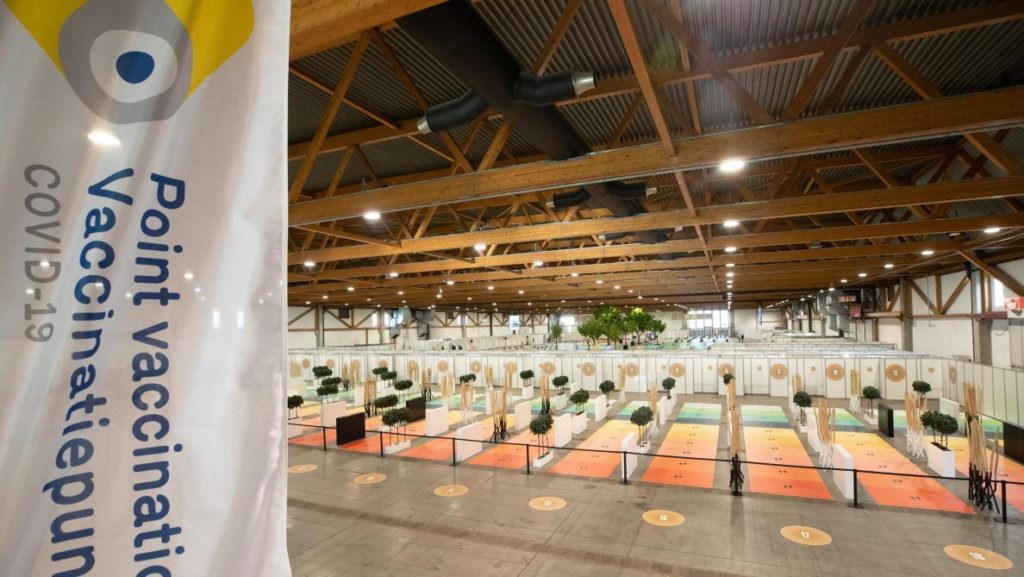With the last coronavirus vaccine shots having been administered in the Heysel Stadium - the largest vaccination centre in Brussels - on Monday, the centre closes today.
Heysel is the first of six vaccination centres in the Brussels-Capital region that is closing its doors in August. The others will gradually wind down operations, with the last one planned to close at the end of October.
"The large masses have been vaccinated, and we want to continue the campaign in smaller centres and also with local actions, such as the Vacci-Buses to get closer to people in neighbourhoods," Fatima Boudjaoui of the Brussels Health Inspectorate told VRT.
Just 64% of adults living in Brussels have received their first vaccine dose, compared to the much higher vaccination rates of 90% and 79% of adults in Flanders and Wallonia, respectively.
However, localised initiatives such as the vaccination buses, which are placed in certain difficult-to-reach areas, are proving successful, according to Boudjaoui.
"These are a great success. In Ixelles, 112 people passed through in two days, and [Sunday] in Molenbeek, 138 people were protected against the coronavirus in one day," she said.
Related News
- 'Not on the table': Brussels doesn't want different rules to Flanders
- Flanders won't wait for Brussels to relax rules
- Brussels vaccination bus: August dates and locations
"Confidential counsellors within faith communities can help to convince people to get vaccinated because there is still a lot of fake news circulating about the Covid vaccines," Boudjaoui added.
"Pastors and imams can help to eliminate a lot of nonsense. They play a key role in getting everyone on the vaccination train," she stressed.
By the end of September, the Brussels authorities want to achieve a full vaccination coverage rate of 70%, which is the threshold put forward by the Consultative Committee as a condition for the next (and last) stage of relaxation after the summer holidays.
Over the past week, the pressure is growing to start differentiating between the Regions, as Flemish Minister-President Jan Jambon stated that he does not want to wait for Brussels to catch up with its vaccinations before relaxing coronavirus restrictions.
While virologist Marc Van Ranst stated that it would not be illogical to differentiate between regions, considering the difference in vaccination rates, he also stressed that it would not be easy in practice.
"These are decisions that have to be taken at a political level," Boudjaoui said. "We are now going to do everything we can to reach the 70% mark of fully vaccinated people as quickly as possible."
In the meantime, Wallonia will also close most of its coronavirus vaccination centres on 28 August, keeping only 16 of them open until September or October, the region announced on Monday.
Between now and the closing date, the centres will mainly administer second doses, but first doses for young people will still be available as well.
The 16 centres that will continue operating in September and October will only be open two days a week, on average. It will be possible to go in for a first dose or to get a second dose, even if the first dose was administered at another centre.

